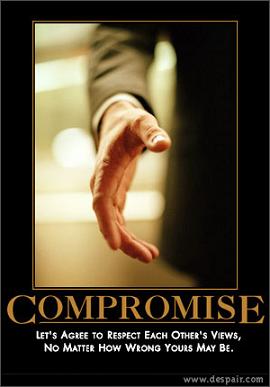Back to the Imus thing
Best of the web has one of the best statements, concerning the effects and acceptance of [some] rap music. So good in fact, that I'll just paste it here:
The racial element of all this is more complicated. It is true, for instance, that if a black man calls his black friend "nigger," the word has a totally different meaning than it would have coming from a white stranger. But rap music is not "all in the family"; it is disseminated widely beyond the black community. "Today 70% of hip-hop is bought by white kids," musicologist Arthur Kempton told the Boston Globe in 2003.
What these white kids are buying, in the words of Stanley Crouch, is "the most dehumanizing images of black people since the dawn of minstrelsy in the 19th century":
Pimps, whores, potheads, dope dealers, gangbangers, the crudest materialism and anarchic gang violence [are] broadcast around the world as "real" black culture.
Why does a genre that embodies ugly stereotypes about blacks have such appeal to young whites? Our surmise is that it has less to do with race than with sex. Adolescent males yearn to be men--but the aspiration for manhood has few ready outlets for expression in a society that has embraced the notion that the differences between the sexes are but social constructs. So boys and young men are drawn to the crude, stylized masculinity of gangsta rap.
Still, if the perpetuation of antiblack stereotypes is bad for blacks--by which we mean not merely offensive but objectively harmful--then gangsta rap has to be the most baneful cultural force vis-à-vis blacks since Jim Crow. Not only is gangsta rap vastly more pervasive than old-fashioned white supremacy; it is far more insidious, because it is presented as the black community's image of itself.
Our society rightly anathematizes white racism against blacks. It is patronizing, if not racist, to suggest that whites, merely by virtue of the color of their skin, lack the moral authority to criticize black racism against blacks.
The racial element of all this is more complicated. It is true, for instance, that if a black man calls his black friend "nigger," the word has a totally different meaning than it would have coming from a white stranger. But rap music is not "all in the family"; it is disseminated widely beyond the black community. "Today 70% of hip-hop is bought by white kids," musicologist Arthur Kempton told the Boston Globe in 2003.
What these white kids are buying, in the words of Stanley Crouch, is "the most dehumanizing images of black people since the dawn of minstrelsy in the 19th century":
Pimps, whores, potheads, dope dealers, gangbangers, the crudest materialism and anarchic gang violence [are] broadcast around the world as "real" black culture.
Why does a genre that embodies ugly stereotypes about blacks have such appeal to young whites? Our surmise is that it has less to do with race than with sex. Adolescent males yearn to be men--but the aspiration for manhood has few ready outlets for expression in a society that has embraced the notion that the differences between the sexes are but social constructs. So boys and young men are drawn to the crude, stylized masculinity of gangsta rap.
Still, if the perpetuation of antiblack stereotypes is bad for blacks--by which we mean not merely offensive but objectively harmful--then gangsta rap has to be the most baneful cultural force vis-à-vis blacks since Jim Crow. Not only is gangsta rap vastly more pervasive than old-fashioned white supremacy; it is far more insidious, because it is presented as the black community's image of itself.
Our society rightly anathematizes white racism against blacks. It is patronizing, if not racist, to suggest that whites, merely by virtue of the color of their skin, lack the moral authority to criticize black racism against blacks.
Labels: race relations


1 Comments:
Having seen your blog I thought you would enjoy reading my e-book "An Ordinary Black Cat" available in www.catyourway.com
By Alexander, at 6:10 AM
Alexander, at 6:10 AM
Post a Comment
<< Home